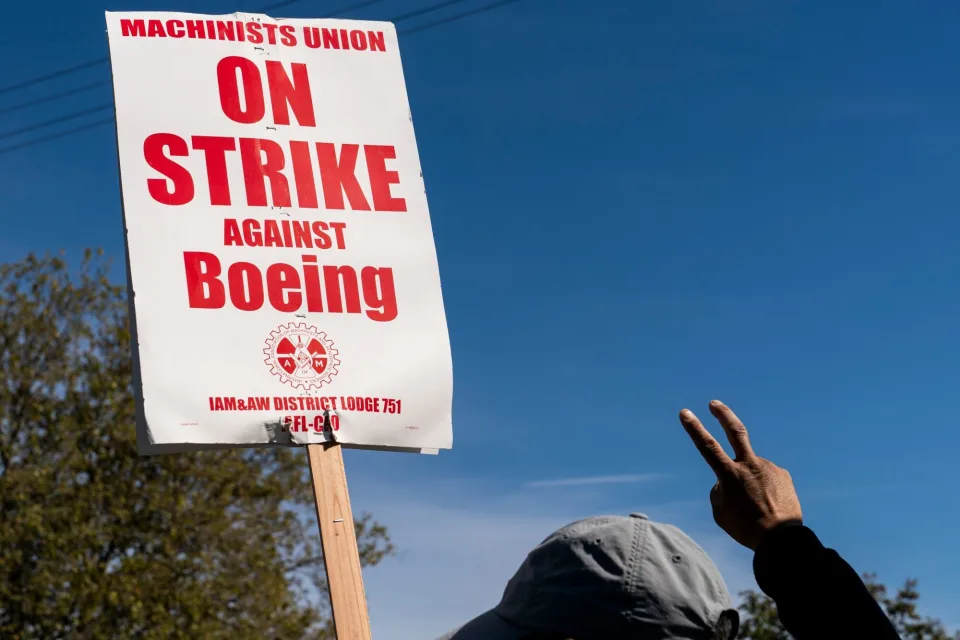Boeing has proposed a new contract offering a 35% wage increase over four years in an attempt to end a lengthy strike that has paralyzed its production lines. The deal, brokered with the help of the White House, includes annual bonuses, a $7,000 signing bonus, and a significant boost to retirement contributions for the 33,000 striking workers. A ratification vote is scheduled for October 23, marking a crucial moment in the ongoing labor dispute.
Strike at a Critical Juncture
The strike, which began on September 13, has halted operations along Boeing’s West Coast facilities, including assembly lines for its key 737 Max, 767, and 777 aircraft. Boeing’s latest offer aims to appease the workers represented by IAM District 751, who had previously rejected two prior proposals, including a 30% wage hike that workers turned down last month. This new deal exceeds Boeing’s original offer by 10 percentage points and includes a one-time bonus if approved.
The stakes are high, not just for the workers but for Boeing’s new CEO, Kelly Ortberg, who joined the company in August. Tasked with revamping operations, Ortberg faces mounting pressure to resolve the labor dispute as the work stoppage begins to ripple through the company’s supply chain. Spirit AeroSystems, a key supplier, recently announced plans to lay off 700 workers due to the strike’s impact on Boeing’s 767 and 777 programs.
Government Mediation and Industry Fallout
The White House, keen to avoid prolonged disruptions in one of the U.S.’s largest exporters, dispatched Acting Secretary of Labor Julie Su to Seattle to mediate the negotiations. President Biden’s administration has emphasized the importance of collective bargaining in resolving labor conflicts, stressing that the ultimate decision will rest with the union workers who will soon vote on Boeing’s latest offer.
Resolving the strike could provide a much-needed boost to Ortberg, who is set to address investors and analysts on October 23 when Boeing reports its third-quarter results. However, despite the improvements in the offer, some concerns remain among the workforce. The latest agreement, while addressing wage concerns and boosting retirement contributions, does not reinstate Boeing’s defined-benefit pension plan—a sticking point for many employees. Instead, the company will increase its contributions to workers’ retirement savings plans, offering a one-time $5,000 contribution and matching up to 8% of salaries.
The Broader Impact
Beyond the immediate labor negotiations, the strike has financial implications for Boeing’s broader operations. With the company already planning to cut 10% of its workforce, the work stoppage threatens to further strain its financial standing. Boeing has already lined up a $10 billion credit facility and registered to raise up to $25 billion over the next three years to shore up its operations.
The strike, Boeing’s first major labor dispute in 16 years, has underscored long-simmering tensions between the company’s hourly workers and its senior leadership. While executives have enjoyed generous compensation packages, workers have experienced stagnant wage growth, fueling their demands for a 40% pay increase and improved retirement benefits.
The success of Boeing’s latest offer hinges on whether it can satisfy workers’ demands for fair compensation without restoring the pension plan—a key unresolved issue. As the October 23 ratification vote approaches, Boeing and the broader industry will be watching closely to see whether this deal finally puts an end to a strike that has had widespread ripple effects across the aerospace sector.





